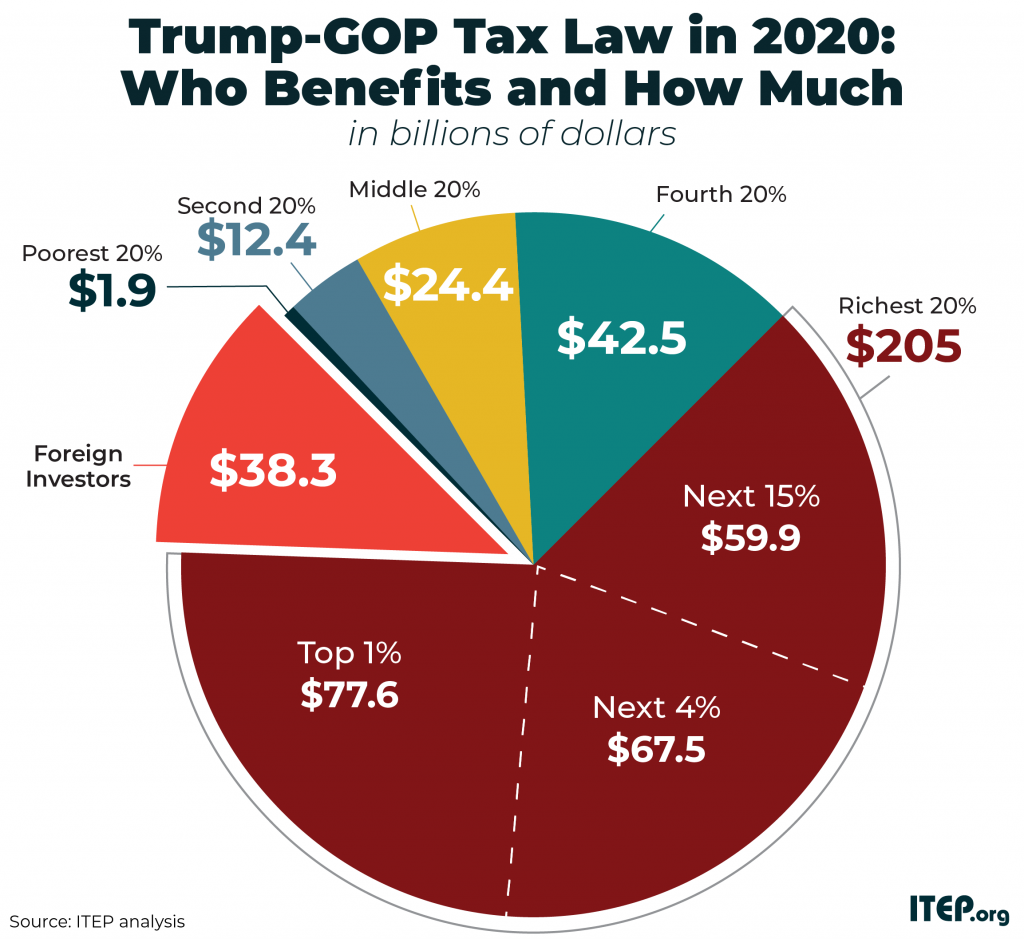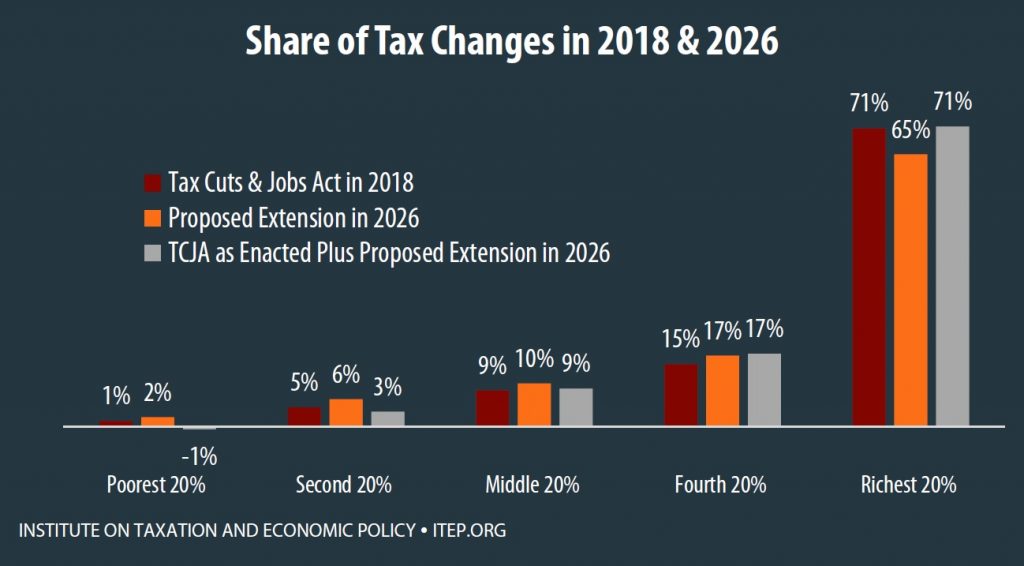President Trump has kept only one of his promises–his pledge to lower taxes for corporations and their investors.
The budget plan he released today again breaks his promise to reject cuts in Medicaid that would affect millions of people. His budget once again fails to eliminate the deficit, much the less the national debt, during his presidency as he promised. It cuts trillions from safety net programs and student aid programs despite his pledge to stand for forgotten Americans.
Who benefits from these fiscal policies? The 91 profitable Fortune 500 corporations that paid no federal income taxes in 2018, their first year under the GOP-Trump tax law. These companies include Amazon, Chevron, FedEx, Halliburton, IBM, Netflix, and others.
Who benefits from this administration’s fiscal policies? The investors in these companies, who are mostly well-off households that also receive most of the personal income tax cuts and estate tax cuts in the GOP-Trump tax law. (See ITEP’s latest estimates of who benefits in 2020).
The 2017 tax law added $1.9 trillion to the budget deficit over ten years. It provided permanent cuts in the corporate income tax, which mostly benefits the owners of corporate stocks in the United States and abroad. The 2017 law also made temporary cuts in the personal income tax and estate tax, which expire after 2025. The President’s budget again proposes to make those temporary tax cuts permanent.
While the budget document states, “All administration policies will pay for themselves, including extending tax cut provisions expiring in 2025,” a close look at the tables included in the budget documents reveals that even the administration knows this is not true.
The administration’s “baseline” revenue estimates (its projections of revenue before any new proposals are enacted) is about $1.4 trillion lower over the coming decade than the current law baseline for revenue.
In other words, administration officials know that extending the temporary tax cuts would cost $1.4 trillion over 10 years but hide this fact by embedding the cost in their baseline.
Again, it is clear who benefits from these policies. ITEP estimated that if the tax cuts are extended, almost two-thirds of the benefits would go to the richest 20 percent in 2026.
Americans have long wanted higher taxes on the wealthy and on corporations, but elected officials have continually cut taxes for the nation’s highest-income households. From 2001 through 2018, significant federal tax changes have reduced revenue by $5.1 trillion. Nearly $2 trillion of this amount went to the richest 1 percent.
Americans are ready for a dramatic course correction on how lawmakers think about taxes and the budget.





